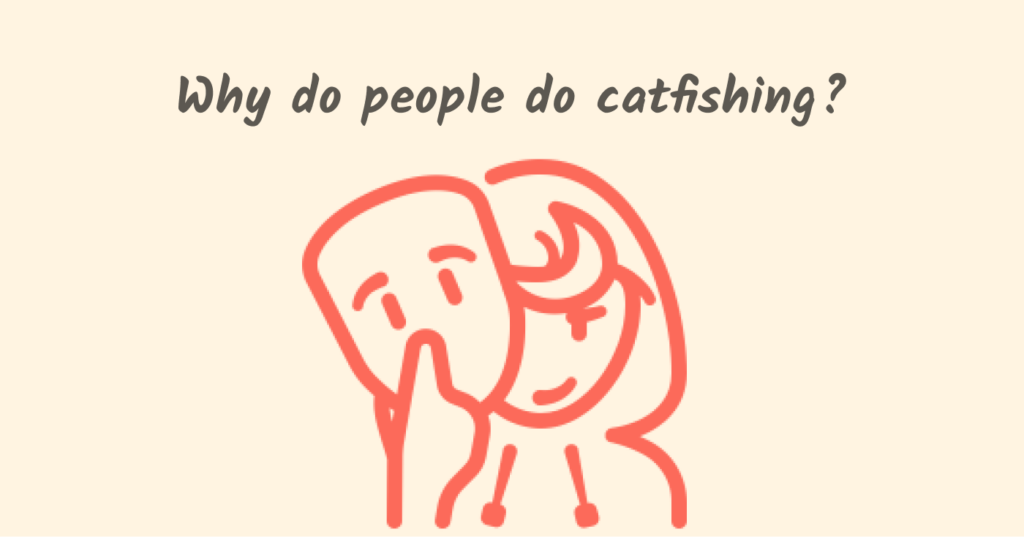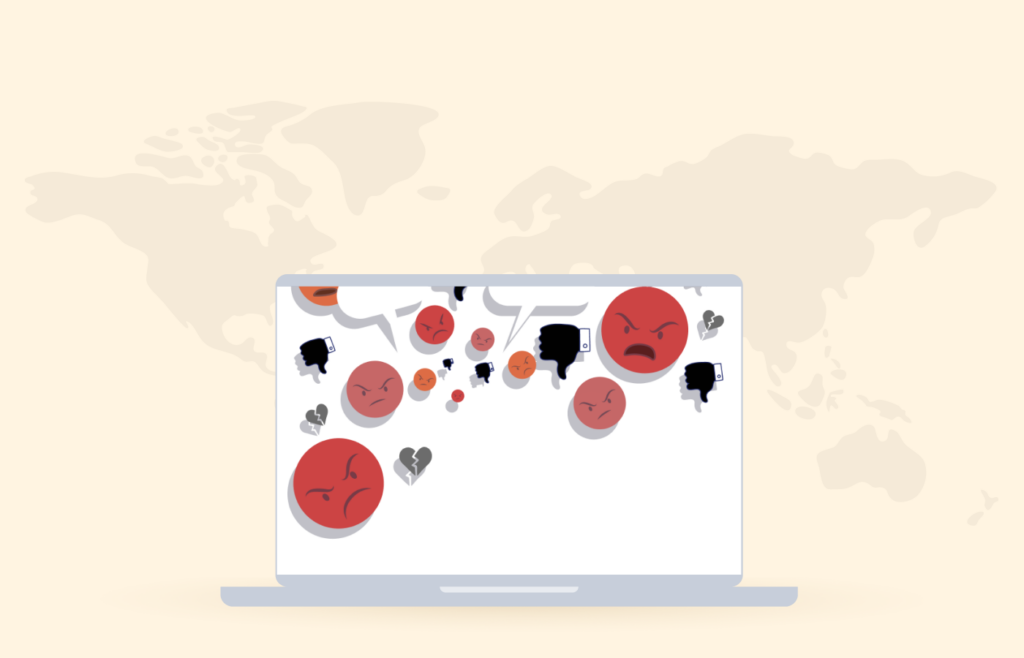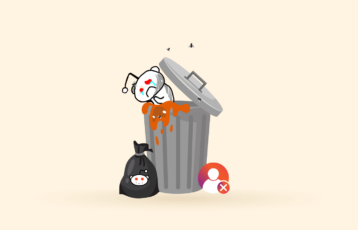
Social media and online dating are signs of our times. Both phenomena exploded over the last decade, and catfishing grew along with both explosions, as could only be expected. In 2020, more than 23,000 US residents fell victim to catfishing. Those 23,000 victims lost about 605 million USD as their catfishers succeeded.
So, what is this “catfishing” thing you keep hearing about? How can you get catfished? What are the signs? What can I do to protect myself from a catfishing artist? If these questions bother you, you’ve landed at the right place. Continue reading to find your answers.
What is catfishing?

A catfisher is an internet user who falsely persuades another internet user about wanting a romantic relationship. The scam usually involves creating a false identity, using the other person’s date of birth, image, location, and everything else the catfisher needs to seem completely genuine.
Catfishers come in many flavors. Some of them want to have more romantic attention from another person. But there is also a more mercenary and malicious species with darker motivations. Many of them seek to earn the victim’s trust. Then, they hit, and they ask for money. Once the situation has gone that far, a variety of additional strategies can come into play, like sextortion. Whatever it takes to get the cash they want.
And why is this thing called “catfishing,” we hear, you ask? Well, nobody knows. There was a popular documentary in 2010 called “Catfish.” It told the story of a young man who fell for a woman sporting a false Facebook profile. However, the documentary made the term known. It didn’t invent it.
At the beginning of the last century, fishers would ship catfish along with codfish. Both species are natural enemies, so the catfish would keep chasing the cod around. Thus the cod remained active, healthy, and fresh, making for better food. Since catfishers stalk their victim, too, the word caught on.
Why do people do catfishing?

People become catfishers for a variety of reasons. Not every “practitioner” of the art has nefarious intentions –although none of them can be considered excellent human specimens. Some are looking for emotional validation –yes, seriously. These people are too lonely or feel stuck in a society that doesn’t appreciate them because they’re not beautiful enough. They want to be “reborn” online with a new persona that attracts people who would otherwise never notice them.
However, let’s not forget that harassing and stalking other people is part and parcel of the catfishing process. So there’s nothing innocent about it, which worsens as it continues. It can end up involving even more severe forms of abuse.
Then there’s the other end of the spectrum. Some catfishes are (or intend to be) pros. They’re in it for the money. Once they’ve secured the victim’s love, they will start offering all kinds of excuses to ask for financial support. Maybe they need the money to go and visit the victim so they can finally meet for real.
Perhaps they had to face some unexpected medical expenses. The victim doesn’t have a problem helping them with their financial woes. They’re in love, after all, and that’s the least they could do. How can you put a price on love when it’s all said and done? But the requests for cash never seem to end. By the time the victim finally realizes what’s been going on in his “relationship,” their heart is broken and their bank account much lighter.
But between those two poles, there are many other reasons for catfishing.
Insecurity about one’s place in real life can push somebody to create an alter-ego that is more like the version of themselves they think they could or should be. In the mind of the insecure subject, his new identity is worthy of admiration, respect, and everything else he’d wish to have but lacks.
Mental illnesses are another factor in catfishing. Depression or chronic anxiety can make a person wish to have a different, better life. The assumed identity they create for catfishing fulfills that fantasy.
Revenge: Some catfishers impersonate other people’s identities to take revenge on them. They show them as a bad person and do bad deeds to defame them and get their revenge.
Harassment: Some impersonators do this to harass their target. When a person blocks a stalker on one or two platforms, the stalker creates a profile of their name and start harassing them.
Another factor is sexual identity. Many catfishers create an alternate identity to try and experiment with a different sexual preference than their current “official” one.
Last but not least, catfishing gives a person the opportunity to express themselves freely and without limitations. Their false identity empowers them in this way, so they feel more like “themselves” as their alter ego. The next step is to create a full alter life.
Where do you get catfished?

Social media platforms and apps are places where catfishing can happen quickly. However, dating sites and apps are steroids for catfishers, much worse than just social media. So let’s have a look at catfishing by platform.
1. Tinder
Tinder is probably the largest dating app in the world. It’s the most significant one in the US, for sure. So it’s no surprise that it’s the catfisher’s favorite playing field.
So, the catfish finds a suitable possible victim. It matches with them. Then it all starts with a lovely message for establishing rapport and begins with the process of earning the cod’s trust. And that’s how it all starts.
A recent development with the Tinder app will require ID verification for every user. That should complicate a catfish’s efforts significantly.
However, it would be best if you didn’t rely on Tinder to protect you from catfish. You can reduce the probabilities of being catfished by managing your Tinder privacy settings wisely, so take a few moments to find the article we have on-site on that subject and look at it.
2. Facebook
Facebook is the world’s premier social medium. The FB user base is so large that it’s hard to believe that there are only 83 million fake accounts on the platform. So it’s no surprise that catfishing is a Facebook sport.
Most Facebook users, including you, have had a friend request at some point, which seemed rather weird. Ignoring and deleting those requests is the best way to deal with them.
85% of all catfishing start with Facebook, if you believe the reliable sources online. Facebook Dating came online in 2019, probably the best thing ever happening to the world’s catfish.
On Facebook, catfishing starts with a friend request. Since this is how everything begins on this platform, it’s not precisely breakthrough news. But, if the victim accepts the request, they will get bombarded with messages and fake stories from the catfish. All very sweet, romantic, lovely, until the proverbial feculence hits the fan.
3. Instagram
More than a billion worldwide users are on Instagram. Since this platform is all about visual content, catfishing would take on it sooner or later.
So, the catfishing expedition can begin with a follow request or a private message on Instagram Direct. The second option will be a message request for the receiver, which needs approval.
Instagram includes many profiles of exceedingly beautiful, successful, and affluent people. Therefore, coming across a person who would seem too good to be true on other platforms doesn’t seem so unlikely on this one.
The Instagram ecosystem includes no shortage of other online scams.
They’re catfishing you! Eight signs to look for

Catfishers know their stuff. If they’ve set their minds on you, they will use their whole arsenal to have their way. They pry on your feelings of affection, infatuation, loneliness, and any other emotion that can compromise your judgment. While every case is unique, some red flags apply to most instances of catfishing. So if any of these eight things are happening between you and your new “friend,” consider them red flags:
- Avoiding video calls. A catfisher can’t afford to have its true identity revealed to you. That’s their secret weapon. Therefore video calls with them are utterly out of the question. Even voice calls won’t be so easy to have with them because their actual voice could give their game away too. Video calls are not everybody’s cup of tea, we know. But when avoiding such calls seems to be obsessive, let the red flags wave!
- Absence from other social media platforms. Online presence is a hydra. It has lots of heads. Real persons will hardly limit themselves to be in a single social media platform. Since Instagram and Facebook will hassle you to extend your account to the other platform, it’s even less likely that this could be the case. And if the person in question is in the younger demographic category, being on every platform is almost mandatory. So let’s say you meet this new Facebook friend who has an outstanding job and seems successful at it. Why is he not on LinkedIn, then? It would be the logical thing. And the model you met on Tinder? How does it make sense that she’s not showing any of her pictures on Facebook or Instagram? Faking an identity on several platforms simultaneously takes more work, which is why this is a red flag for catfishing. However, don’t take the opposite case to guarantee anything. A committed catfish will go the extra mile to persuade you of their identity.
- Lack of friends or followers. Let the sirens sound if this new person who wants to chat you up has very few followers or friends. The whole point of social media is to connect with as many people as possible; for younger users, it’s almost a religion. Consider also that the usefulness of a social media account is proportional to the number of friends you have. So it is especially suspicious if the account wasn’t created recently. If the given reason is that the new “friend” prefers to keep a tight social circle, then why is she suddenly trying to chat with a random stranger?
- The profile is too recent. A social media profile with a very recent creation date is not a good sign. While it could mean that the user is genuinely new to the platform, the thing is that catfishers will also create new fake profiles to lure their victims.
- The pictures are too good. Images on social media platforms are not about showing off your professional portfolio. Even celebrities with such accounts and constant access to experienced photographers post plenty of low-quality photos in the form of selfies or pictures taken by friends and family. So if you find a profile made up of high-quality images only (or nearly), it’s another red flag. The photos could be stolen. For sure, they show an excessive effort to look good.
- Stolen pictures. No good purpose includes using stolen photos in a profile. That is one of the louder signs that somebody is out to scam other people. Use Google’s reverse image search to find similar pictures if you doubt.
- Asking for money. This one is nearly the very definition of catfishing. Asking a recent internet acquaintance for money is weird, period. Ordinary people ask their closest friends and family, and even then, they think things through thoroughly.
- Asking for explicit visual material. Many catfishing cases get complicated as the catfish increases the stakes by extending the scam with sextortion. But, of course, they can’t start the sextortion process unless they have sensitive videos and pictures of you beforehand, so they’ll have to ask you for them.
Social catfish
“Social Catfish” is a digital searching tool that can help you confirm if you’re facing a catfish scenario. Then, you use it to do research on people by providing their vital stats.
Unfortunately, it’s not free of charge. A five-day trial will cost you 6 USD, and the monthly fee is 27 USD. So, if you want the “search specialist,” it will set you back almost three hundred dollars.
It’s an expensive service to retain permanently for sure. However, it’s good to know that the option is there if you should ever need to use it. And the price reflects the information quality too. The profile you get is deep and comprehensive, including past relationships and criminal records.
Catfishing and cyberbullying
Cyberbullying is the reprised effort to harm, humiliate, or embarrass somebody in a digital ecosystem. Catfishing fits the bill because the catfish will end up hurting the victim, and it’s playing mind games.
Catfishing creates the appearance of a human relationship to extract information from the victim. But unfortunately, the data will be turned against its owner sooner or later, either for blackmail or to harm its reputation.
Cyberbullying is also about turning a person’s emotions against them. In the typical cyberbullying scenario, the feelings are fear, depression, or sadness. Catfishers do the same, but using a different emotion.
Are you being catfished online? Don’t do this!

We hope that the information in this guide will go a long way in helping you prevent becoming a catfishing victim. The first step in defending yourself from any scam is awareness, so now you should be ready than before to face a situation like this.
But life offers no guarantees. Everybody can have a bad day, hit an unlucky spell, have a momentary lapse of reason, or go against a catfish that is thoroughly skillful and committed. So if, despite your best efforts, you get catfished, after all, have these points in mind:
- Please don’t give them any money. If you already did, stop immediately. And reach out to your local police department. Press charges and starts an investigation. You could get your money back because this is cyber fraud.
- Cut off any communications from the catfish. Block them from your social media accounts.
- Report the catfish to the website’s administration.
- Report the catfish to a scam tracker.
FAQs
Catfishing is an online scam in which a person assumes a false identity and uses it to win another person’s trust. The scam typically involves the simulation of a romantic relationship that progresses toward requesting money and can include blackmail and sextortion.
Several red flags could point to a catfisher. But the three more vital signs would be avoidance of video calls and physical meetings, the use of stolen pictures, especially if they’re too professional, and requesting money.
In 2020, there were 23,000 reported catfishing cases in the US. It’s anybody’s guess what the actual figure is, including the unreported instances. So as an American internet user, your chances of having somebody catfishing you successfully are about 1%.






